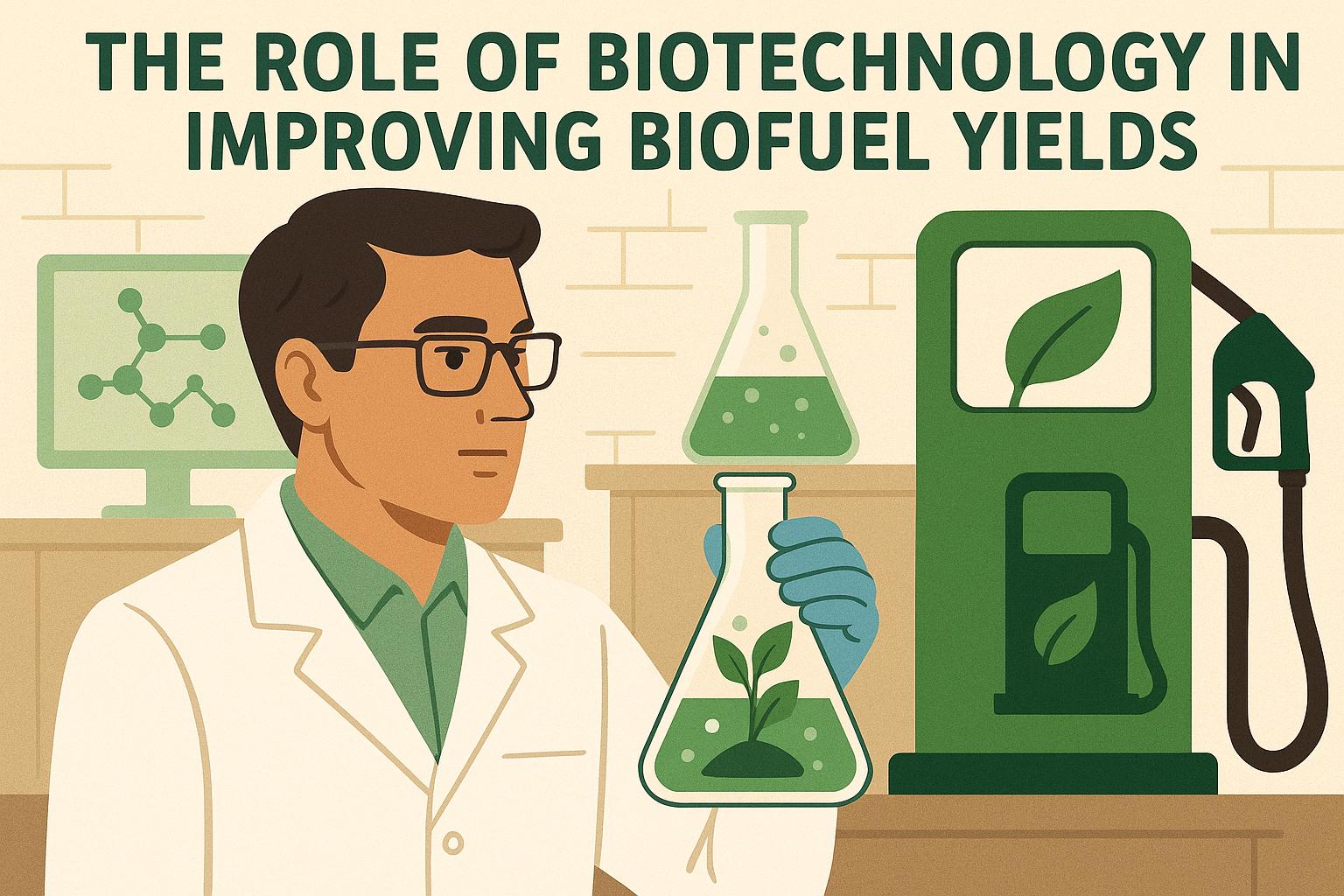The Role of Biotechnology in Improving Biofuel Yields
Biotechnology has emerged as a pivotal element in enhancing the efficiency and sustainability of biofuel production. By leveraging advanced biotechnological techniques, researchers and industry experts aim to increase biofuel yields, ensuring a more sustainable and economically viable alternative to fossil fuels. The integration of biotechnology into this field promises significant improvements in biofuel production, which is crucial for meeting global energy demands while minimizing environmental impact.
Modification of Microorganisms
One of the primary strategies employed in biotechnology for improving biofuel yields is the genetic modification of microorganisms. Scientists have been able to develop strains of bacteria and yeast that can more efficiently convert biomass into biofuels. These genetically enhanced microorganisms possess improved metabolic pathways that allow for increased production of ethanol, biodiesel, and other biofuels. By altering the genetic makeup of these microorganisms, researchers can enhance their natural abilities, enabling them to break down complex plant materials more effectively. For further information on microorganism modification, you can explore resources provided by genome.gov.
Enzyme Engineering
Enzymes play a crucial role in the breakdown of cellulose and other complex carbohydrates found in biomass into simple sugars, which can then be fermented into biofuels. Through biotechnological advancements, enzymes have been engineered for higher activity levels and better stability in industrial conditions. This enhancement results in faster and more efficient conversion processes. Enzyme engineering focuses on modifying enzyme structures to enable them to function optimally under various industrial conditions, such as high temperatures or extreme pH levels, thereby facilitating continuous and uninterrupted biofuel production.
Cellulosic Ethanol Production
The production of cellulosic ethanol, derived from non-food plant material, has greatly benefited from enzyme engineering. The development of robust enzymes capable of breaking down tough plant fibers has been a significant driving force in making cellulosic ethanol a more feasible option. As traditional feedstocks are limited in scope, cellulosic ethanol offers a sustainable alternative by utilizing agricultural residues, wood chips, and other non-edible plant materials. These advancements are addressed in detail by energy.gov.
Improved Feedstock Varieties
Biotechnology also contributes to biofuel yields through the development of improved feedstock varieties. By employing genetic engineering and selective breeding techniques, scientists have created plant varieties with higher biomass output, increased resistance to pests, and improved tolerance to harsh environmental conditions. These characteristics not only enhance biofuel yields but also contribute to the sustainability of biofuel production systems. Enhanced feedstock varieties are crucial in optimizing land use and ensuring that biofuel production does not compete with food production.
Algal Biofuels
Algae offer an exciting avenue for biofuel production due to their high oil content and rapid growth rates. Biotechnological interventions have enabled the development of algal strains that produce higher lipid content, optimize nutrient usage, and resist environmental stressors. As a result, algal biofuels are becoming a more attractive and commercially viable option. Unlike traditional biofuel feedstocks, algae can be cultivated on non-arable land, and with the use of seawater or wastewater, further reducing competition with agricultural resources. Detailed explorations of algal biofuels can be found at arpa-e.energy.gov.
Metabolic Pathway Optimization
Enhancing the metabolic pathways of biofuel-producing organisms is another critical aspect of biotechnology in biofuel yield improvement. By modifying these pathways, researchers can redirect metabolic processes toward the increased production of desired biofuels, minimizing the generation of unwanted by-products. This refinement in metabolic engineering increases the efficiency of biofuel production, allowing for higher yields from the same inputs, and enhances the overall economic viability of biofuel operations. Metabolic pathway optimization is highly specific to the type of organism and the biofuel being targeted, making it a complex but rewarding area of research.
Biotechnology and Sustainability
Biotechnology not only bolsters biofuel yields but also contributes to sustainability in several ways. By improving the efficiency of biofuel production, it reduces the overall carbon footprint of biofuel industries. Furthermore, by optimizing the use of resources and minimizing waste, biotechnology ensures that the production process is as eco-friendly as possible. Improved feedstock varieties lined with reduced need for fertilizers and pesticides emphasize environmentally sustainable practices. Additionally, the reduction in land use changes and the use of non-food based crops address food security concerns while maintaining biofuel supply.
Addressing Economic Viability
While sustainability is a significant advantage, the economic viability of biofuels is equally important. Biotechnology reduces production costs by optimizing processes and increasing yields. Higher yields per unit of feedstock decrease the overall cost of biofuel, making it competitive with fossil fuels. The development of robust bioprocesses that employ genetically optimized microorganisms and enzymes lowers operational costs. Moreover, breakthroughs in algal biofuels provide the potential for even greater reductions in costs and carbon emissions due to the fewer resources required for algae cultivation compared to traditional crops.
The Path Forward
Biotechnology’s role in enhancing biofuel yields has provided a framework for future advancements in sustainable energy. Continued research and development in this field are critical to overcoming present challenges and further unlocking biofuel potential. Collaborations among biotechnologists, agronomists, and industrial engineers are essential in pushing the boundaries of what is achievable. Government support and policy directives will also play a key role in promoting biotechnology innovations and supporting biorefineries’ infrastructural developments, creating a robust biofuel industry ready to meet global challenges.
Conclusion
Biotechnology continues to play an instrumental role in optimizing the production of biofuels, addressing challenges of yield, cost, and sustainability. Through genetic modification, enzyme engineering, feedstock enhancements, and metabolic pathway optimization, the potential for biofuels to serve as a replacement for fossil fuels is progressively becoming a reality. These advancements illustrate the broad and impactful role of biotechnology in transitioning towards more sustainable energy solutions. As these technologies evolve, the vision of a reliable, affordable, and sustainable energy source becomes more apparent, paving the way to reduce our dependence on fossil fuels and contribute to a more resilient energy future.


